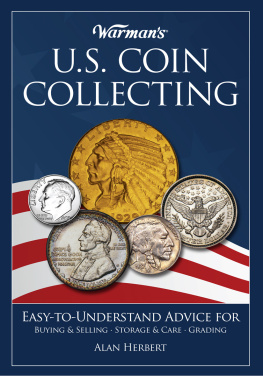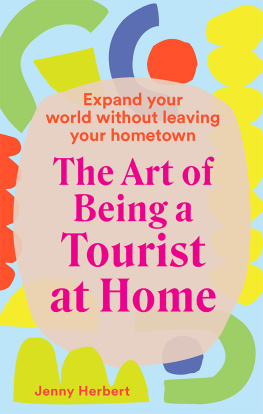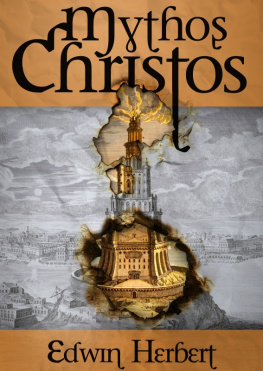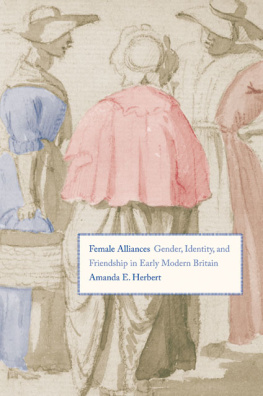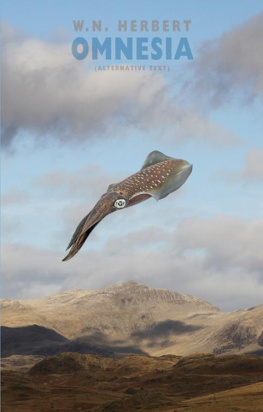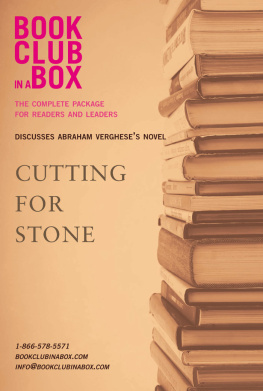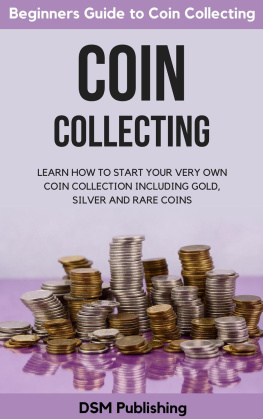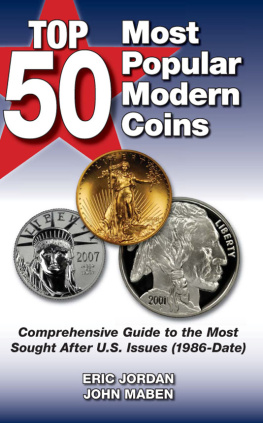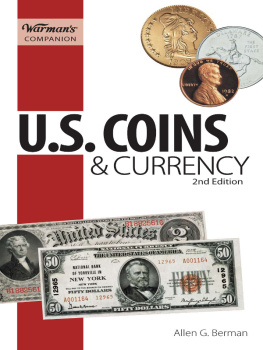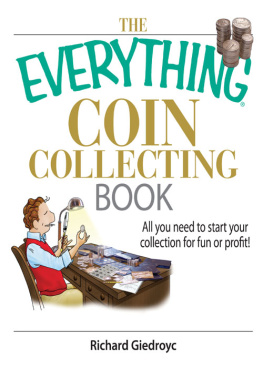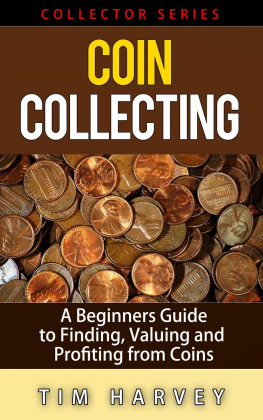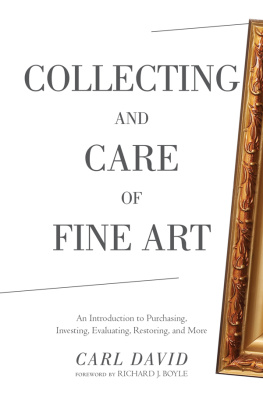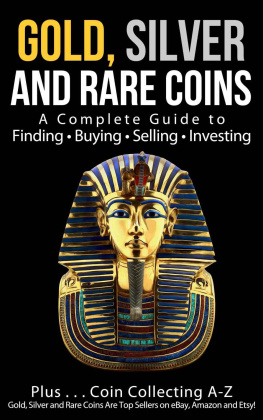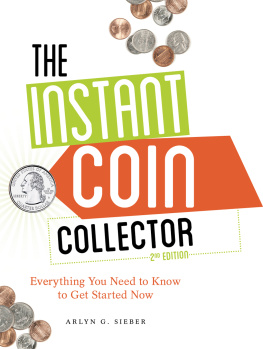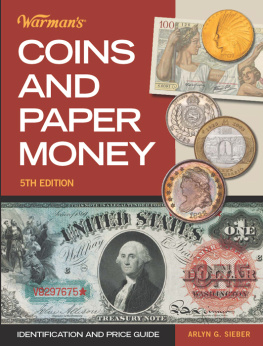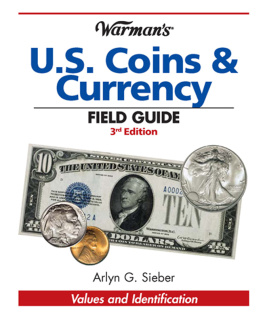To Joey Noyce, carrying on the collecting tradition of his father, grandfather and great-grandfather.
FOREWORD
When I started collecting coins in the 1970s, I was eager to gather as much information as I could. I subscribed to major numismatic publications, including Coins magazine, the one that first attracted my attention and that today I edit. I also followed advertisements and compiled 3-by-5-inch note cards on offerings in auction catalogs, jotting down, for later reference, the general strike characteristics and rarity levels of U.S. coins.
I was soon thoroughly immersed in the hobby. I knew the names of the major dealers and the major writers in the field. The problem was, I didn't know many fellow collectors. That is why, when the opportunity arose, I joined a local coin club and later the state collecting organization and ultimately the American Numismatic Association.
Along the way I've relished the opportunity to meet the hobby's top names and to learn from them. The book you are holding is by one of these true hobby luminaries. Alan Herbert's specialty has always been minting varieties. However, as an avid follower of everything he writes, I can tell you another real strong suit of his is in the area of common sense advice. Alan writes in an easy-to-read and understand fashion, and he explains topics thoroughly.
For instance, Alan reworked one of the hobby axioms into something clearer and more useful. Alan relates that you should buy the book before you buy (or sell) the coin, which is an admonishment to new collectors to take care to learn the hobby before spending large sums of money on any tempting collectible, or before selling. As Alan often observes, you need to know as much to sell a coin as to buy one.
I'm amazed at the number of people who jump right in and buy coins or paper money without knowing a thing about what they are doing. So, like Alan says, you need to build a good reference library. But I would stress that you not only buy the book, but also that you read it. The more you learn the better equipped you'll be.
Coin collecting is a wonderful hobby. It allows anyone the chance to become an expert. Those who take advantage of this, and along the way follow the sage advice offered here by Alan Herbert on how to get started, how to handle and store coins, how to grade, etc., will find their enjoyment of the pastime greatly enhanced.
So read this book. It's a great hobby and there's no better teacher of the necessities in this regard than Alan Herbert.

Robert R. Van Ryzin
Editor, Coins magazine
INTRODUCTION
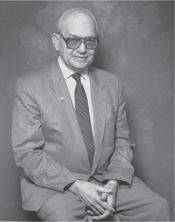
First of all, let me warn you. If you have picked this book in order to find out what your coins are worth, you have the wrong book. For values you need to consult a coin price guide. This book is intended to get you started collecting in the right direction with your coins, not how or where to buy or sell them.
You probably already have noted the match between the cover of this book and the Warman's coin folders. This is an important partnership that I will explore with you in Chapter 12 Safekeeping your Coins.
The ancient Chinese described a part of the human head as The Bump of Curiosity. Yours is working, as demonstrated by the fact that you are curious enough to open this book to see if coin collecting appeals to you.
Coin collecting is a hobby one of the few that has something tangible to show for the hours you put into it. However, it is also a thriving business for the hundreds of coin dealers across the country. I happened to be one of the fortunate few who turned coin collecting from a hobby into a full time job as a journalist, which has carried me across the U.S. and to most of the countries in Europe while affording me what amounts to a doctorate in coins. It gave me a nickname the AnswerMan that stuck with me.
It's relatively easy to gather coins. Kept in a sock, an ashtray, a glass jar or a milk can, coins get diverted from their regular task as money to a sedentary life until you come along and decide to make a collection out of these curious pieces of metal. Just think, that 1793 large cent might have graced George Washington's pocket, or bought something for Thomas Jefferson.
Collecting coins has unexpected benefits as you learn more about art, economics, finance, history, geography and numerous other disciplines. It's impossible not to learn the many things that collecting offers. There are no limits beyond the scope of your imagination.
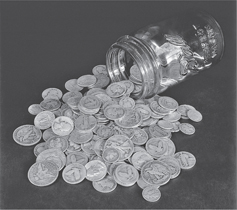
Further on you will find some rules, some Do's and Don'ts. Everyone has rules and coin collecting is no different. We have unique signs and symbols a secret language that you can ignore for the time being. Ultimately, to round out your status as a serious collector, you will need to learn the language, which is awash with slang and nicknames. As you use the terms they will become more familiar to you.
If you are looking for a big quick profit, close this book carefully and put it back on the shelf. Coin collecting is primarily a hobby and investing is another matter completely. I never recommend coins as an investment for the beginning collector. You could also invest in sowbellies, but I don't recommend that for the beginning investor either.
Coin collecting is as diverse as you want to make it. Numismatics (pronounced NEW-mis-MAT-ics) covers coins, paper money, tokens, medals and other items used as money, or closely associated. Woodpecker scalps and bars of soap come to mind, among other unexpected objects used to buy or trade for things.
I mentioned rules, but really, one of the principal added attractions of coin collecting is that there are vast areas where there are no rules, other than any self-imposed checks and balances. For example, there is no rule that says you have to collect dog teeth. If you want to define any particular group of your coins as a set, that's your call.

